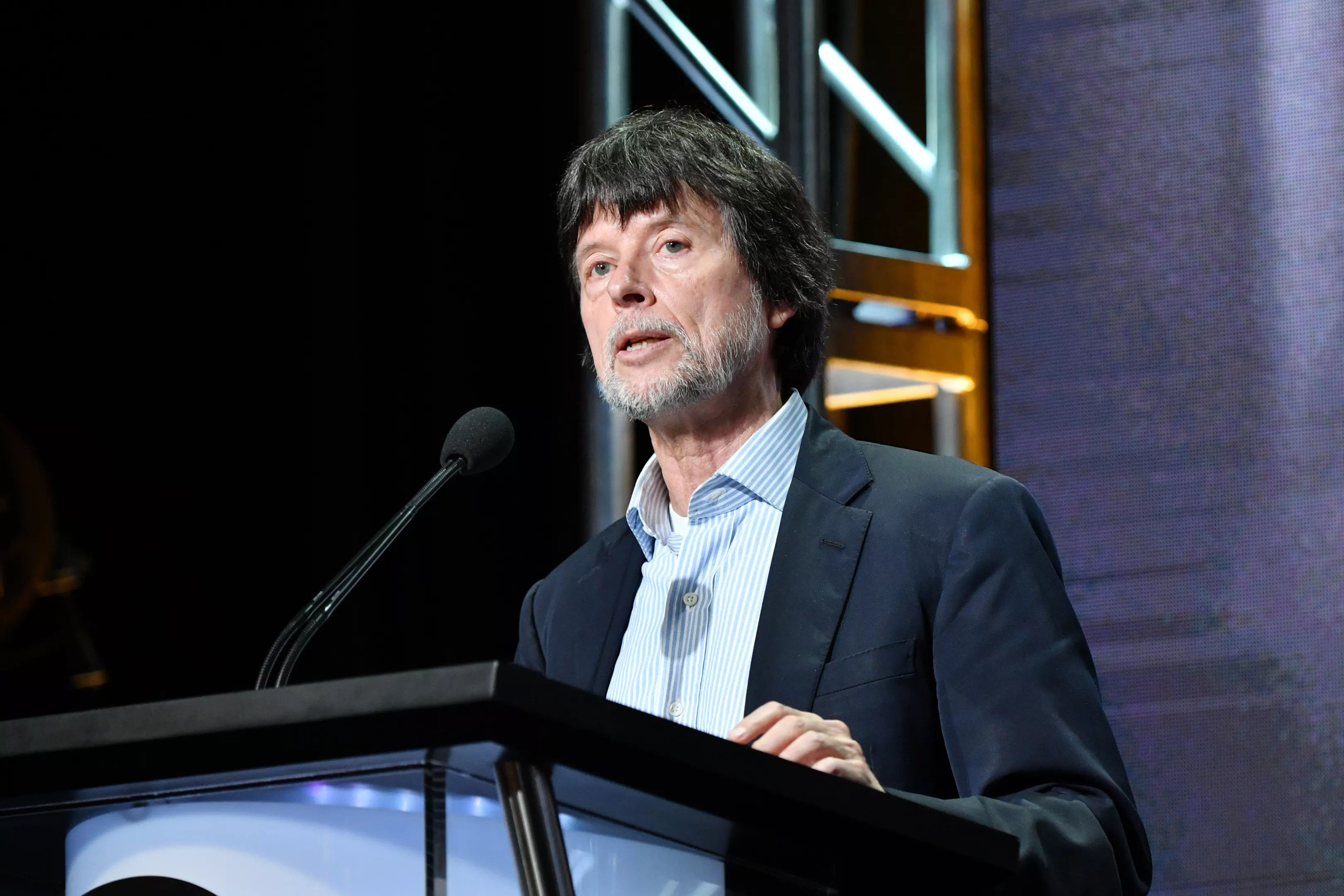
Photo by Amy Sussman/Getty Images

Audio By Carbonatix
Through Ken Burns’ lens, history is never a thing of the past but rather an echo of whatever we are going through in modern times. His latest subject – the American Revolutionary War – is no exception to this rule.
Burns recently stopped by Dallas to preview his new documentary for PBS. He spoke to everyone from a group of Pegasus Media Project students at the KERA offices to public radio supporters at the Winspear Opera House. Those in attendance at the Winspear were treated to a 48-minute preview of the new release, which will air on PBS in its six-part, 12-hour entirety later this year.
“This is the most important event in world history since the birth of Christ,” says Burns.
The American Revolution film – which spent the last eight years in production – examines a war that may seem more unfocused through the lens of time, particularly in Texas classrooms that tend to land more on the yee-haw history of the Lone Star State.
The Revolution impacted far more than Americans alone, resulting in a set of core principles that democracies around the world still draw from – lessons that citizens could refresh themselves on in our current fractious time.
“When somebody says, ‘What do you want people to get out of the film?’ I just want to put the ‘us’ back in the United States,” Burns told the Pegasus Media Project students. “We have a way of reinvigorating our relationship to the founding ideals.
To tell such a complex story, Burns settled on multiple narrators, a “chorus of voices” whose unique experiences, when pieced together, help tell a truer story of the war that shaped our nation.
“In the editing room, we have a neon sign hanging for a decade that says in cursive, ‘It’s Complicated,'” he told the students. “If a scene is working, you don’t want to touch it, but that’s all we spend our lives doing – touching and messing it up, maybe making it not as good as it was, but truer to the complexity of the situation.”
Unlike Burns’ past Florentine Films productions, which were able to draw from archival footage, photographs and interviews with eyewitness subjects, The American Revolution is a more cinematic undertaking. The film leans heavily on paintings instead of photographs (12,000 initial images were winnowed down to 1,200) and reenactments instead of found footage.
Burns and his co-directors, Sarah Botstein and David P. Schmidt, brought the times to life through supporting characters, ranging from a 15-year-old enlisted serviceman fighting to get home to his parents in Boston, to a Mohican woman who lost five sons in the fight for independence. A starry cast voices the letters and diaries uncovered by Burns and his team, including Hollywood royalty like Tom Hanks and Meryl Streep, as well as Stranger Things’ Maya Hawke and Joe Keery. Emmy Award-winning actor Peter Coyote also does a masterful job as lead narrator.
“There’s literally never been a Hollywood film or a TV series that has a cast like this one,” Burns told the Pegasus Media Project students. “They’re all people who come and work with us for a few hours in the studio to make something come alive, and they love it. In fact, Tom Hanks, who has read for us for almost 25 years, I brought him in and said, ‘I’m just not going to make you George Washington as much as I want to,’ because he could read the telephone book. [Instead] we gave him 12 or 14 voices.”
The film pulls deeply from the expertise of historians such as Jane Kamensky, a Harvard professor and CEO and president of the Monticello/Thomas Jefferson Foundation, as well as New York Times best-selling author Rick Atkinson, both of whom accompanied him at the Winspear preview. The result leads to a plot arc that Burns describes as “an utter surprise.”
“I don’t know how much American history you’ve had, but it’s kind of Lexington and Concord, sometimes Bunker Hill, then Trenton and Yorktown, and there’s a lot of stuff in between all of that that we go into,” Burns tells us. “But more importantly, there’s a social and political and human dynamic that takes place [viewers] have no idea about.”
Burns has previously explored conflicts like World War II, the Holocaust, and the Civil War, so while taking on the American Revolution might have seemed inevitable, the timing appears eerily prescient at a moment when many are once again fighting for freedoms in the U.S.
“This has been the story of my life,” Burns laughs. “When we started this, nobody was talking 250 years [of America], but several years in, I was like, ‘Man, I hope we can get it out in the spring of ’25 because that would be the 250th anniversary of Lexington and Concord.”
With that zeitgeist in mind, Burns feels that citizens should consider new lessons from the war that shaped our nation as we approach the Semi-quincentennial of our country.
“This is the beginning of citizenship as opposed to subjecthood. These are the highest ideals of humankind. This is a bloody, bloody civil war that people do not appreciate how bloody and how violent and how much of a civil war it was, meaning large deaths of civilians going on, and not just between combatants.” Burns says. “This is a big deal moment. We like to say there’s nothing new under the sun, but there was, for a second, something new under the sun.”
The American Revolution airs in full on November 16 on PBS.